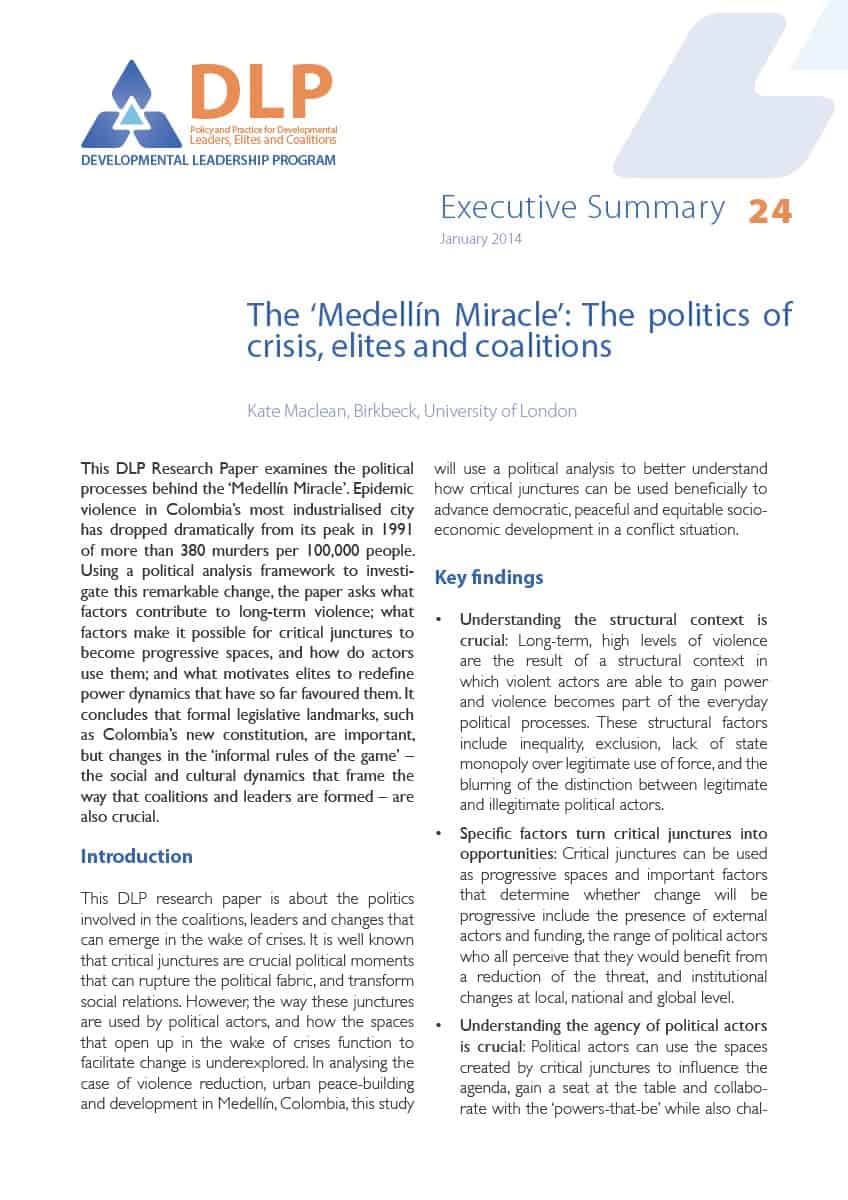This DLP Research Paper examines the political processes behind the ‘Medellín Miracle’. Epidemic violence in Colombia’s most industrialised city has dropped dramatically from its peak in 1991 of more than 380 murders per 100,000 people.
Using a political analysis framework to investigate this remarkable change, the paper asks what factors contribute to long-term violence; what factors make it possible for critical junctures to become progressive spaces, and how do actors use them; and what motivates elites to redefine power dynamics that have so far favoured them. It concludes that formal legislative landmarks, such as Colombia’s new constitution, are important, but changes in the ‘informal rules of the game’ – the social and cultural dynamics that frame the way that coalitions and leaders are formed – are also crucial.
Download the summary below or see the full paper.









